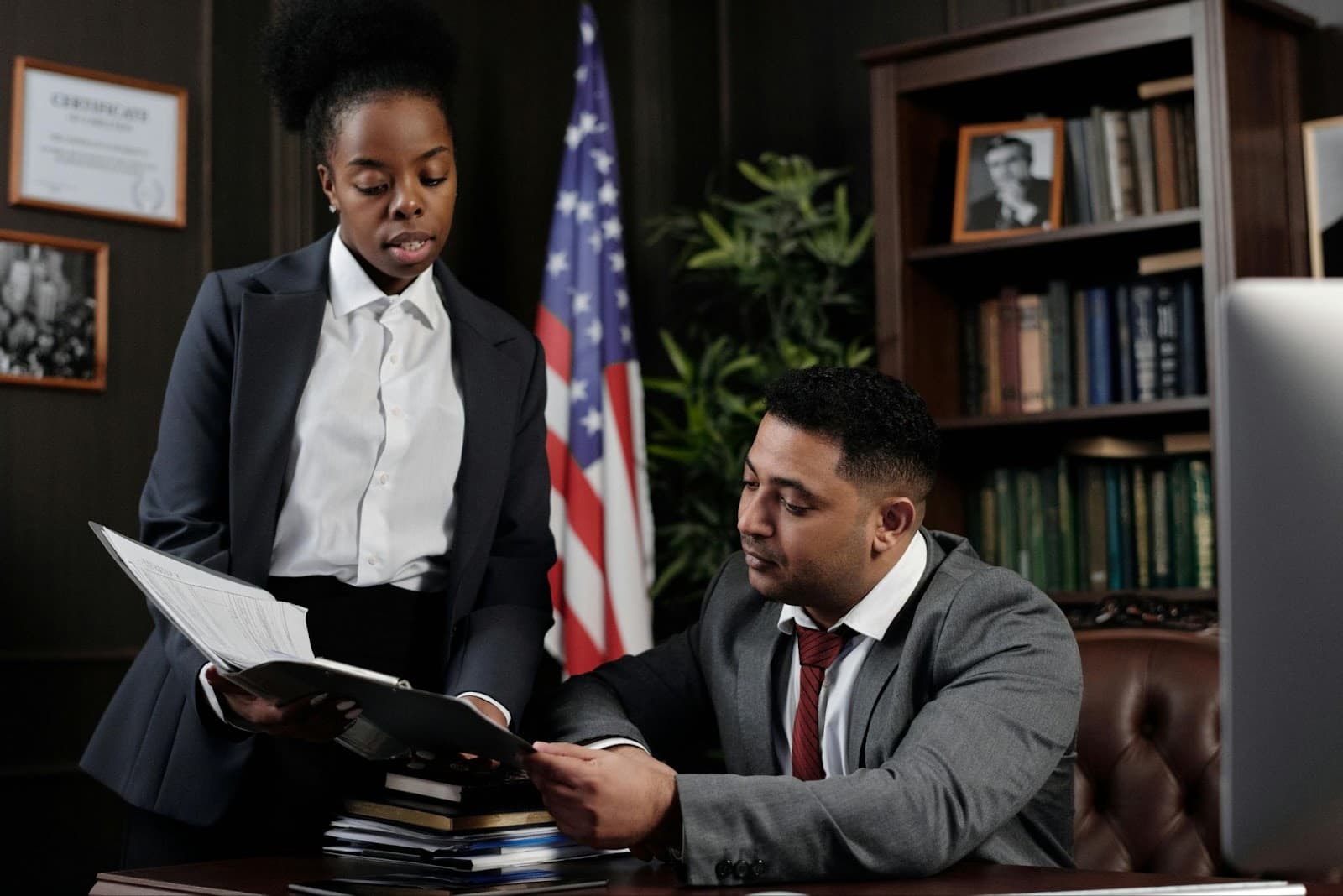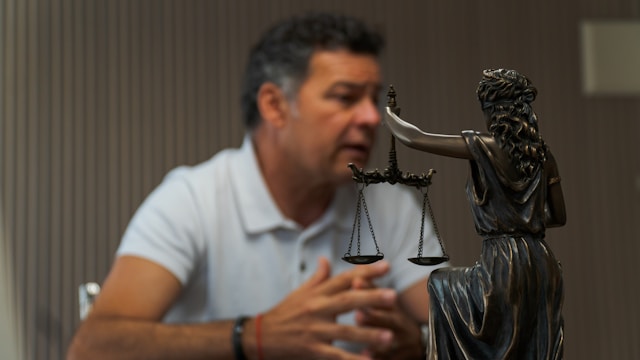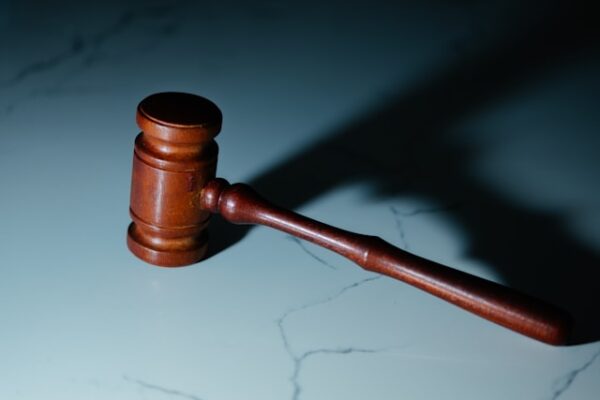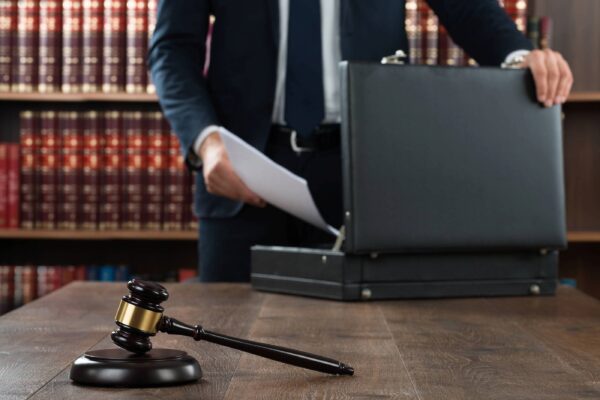Peculiarities of legal activity in the USA
The legal system of the United States is a complex and multifaceted entity that reflects the country’s unique historical development and cultural values. From the coexistence of federal and state laws to the prominent role of juries and the practice of plea bargaining, the American legal landscape is characterized by several peculiarities that distinguish it from legal systems in other parts of the world. This article explores these distinctive features, providing a comprehensive overview of what makes legal activity in the USA particularly unique.
Dual Federal and State Legal Systems
One of the most distinctive aspects of the American legal system is the coexistence of federal and state legal systems. This dual structure stems from the U.S. Constitution, which establishes a federal government with specific powers, reserving all other powers to the states. As a result, both federal and state courts have jurisdiction over legal matters, and individuals may be subject to both federal and state laws.
Key Differences Between Federal and State Courts
| Aspect | Federal Courts | State Courts |
| Jurisdiction | Cases involving federal laws, treaties, and the Constitution | Cases involving state laws and regulations |
| Judges | Appointed by the President, confirmed by the Senate | Elected or appointed, depending on the state |
| Types of Cases | Federal crimes, bankruptcy, patent law | Family law, contracts, personal injury |
| Appeals Process | U.S. Courts of Appeals, then Supreme Court | State appellate courts, then state supreme court, possibly Supreme Court |
This dual system allows for a balance of power between the federal and state governments but can also lead to complexities, such as differing legal standards and potential conflicts of law.
Common Law System and Case Precedent
The United States operates under a common law system, which is largely based on English common law traditions. In this system, the law is developed through court decisions, and past judicial rulings (precedents) are highly influential in determining the outcomes of future cases.
Importance of Precedent
- Stare Decisis: This legal principle means “to stand by things decided,” ensuring consistency and predictability in the law.
- Binding Precedent: Decisions made by higher courts are binding on lower courts within the same jurisdiction.
- Persuasive Precedent: Courts may consider decisions from other jurisdictions or lower courts as persuasive but not binding.
The reliance on precedent ensures that similar cases are treated alike, but it also means that the law can evolve over time as courts reinterpret existing laws in light of new circumstances.
The Adversarial System and Role of Lawyers
The U.S. legal system is fundamentally adversarial, meaning that legal disputes are contests between opposing parties, each represented by their own attorneys. The judge acts as a neutral arbiter, ensuring that the trial proceeds according to legal rules.
Key Features of the Adversarial System
- Party Control: The parties involved control the presentation of evidence and arguments.
- Neutral Judge: The judge ensures fairness and legal compliance but does not investigate facts.
- Role of Attorneys: Lawyers vigorously advocate for their clients’ interests.
- Evidence Presentation: Each side presents evidence to support their case, and cross-examines the other side’s witnesses.
- Jury Involvement: In many cases, a jury determines the facts and renders a verdict.
This system is designed to uncover the truth through a competitive process, with the belief that justice is best served when both sides have the opportunity to present their strongest case.
The Jury System
The use of juries is a hallmark of the American legal system. Juries are groups of citizens tasked with determining the facts of a case and delivering a verdict.
Types of Cases Involving Juries
- Criminal Cases: Juries decide whether the defendant is guilty beyond a reasonable doubt.
- Civil Cases: Juries determine liability and may award damages.
- Grand Juries: These juries decide whether sufficient evidence exists to indict a suspect and proceed to trial.
Benefits of the Jury System
- Community Participation: Juries allow for community involvement in the justice system.
- Fairness: Diverse perspectives can contribute to a fair verdict.
- Checks and Balances: Juries serve as a check on government power.
However, the jury system also faces criticism, including concerns about juror bias, the complexity of cases exceeding jurors’ understanding, and the efficiency of the process.
Constitutional Rights and Judicial Review
The U.S. Constitution plays a central role in the legal system, providing a framework for government and safeguarding individual rights. The power of judicial review allows courts to interpret the Constitution and invalidate laws that conflict with constitutional provisions.
Fundamental Constitutional Protections
- First Amendment: Freedom of speech, religion, press, assembly, and petition.
- Fourth Amendment: Protection against unreasonable searches and seizures.
- Fifth Amendment: Rights related to due process and protection against self-incrimination.
- Sixth Amendment: Right to a fair trial, including the right to counsel and an impartial jury.
- Fourteenth Amendment: Equal protection under the law and application of rights to the states.
The judiciary’s role in interpreting these rights can lead to significant legal developments, impacting legislation and societal norms.

Legal Profession in the USA
Becoming a lawyer in the United States involves a rigorous process, and the legal profession is governed by strict ethical standards and licensing requirements.
Steps to Become a Lawyer
- Undergraduate Education: Obtain a bachelor’s degree in any field.
- Law School Admission Test (LSAT): Pass the LSAT for law school admission.
- Law School: Complete a Juris Doctor (JD) program, typically three years.
- Bar Examination: Pass the bar exam in the state where one intends to practice.
- Character and Fitness Review: Undergo an evaluation of moral character.
- Continuing Legal Education: Participate in ongoing education to maintain licensure.
Lawyers in the U.S. may specialize in various fields, such as criminal law, corporate law, or family law, and must adhere to professional conduct rules.
Litigation Culture
The United States is known for its litigious culture, with a high number of lawsuits filed annually. This tendency is influenced by several factors, including the availability of legal remedies, the role of contingency fees, and the potential for substantial damages awards.
Contributing Factors to Litigation Culture
- Access to Courts: Individuals have broad access to the legal system to address grievances.
- Contingency Fees: Lawyers may represent clients without upfront payment, receiving a percentage of the settlement or judgment.
- Punitive Damages: Courts may award damages intended to punish defendants, not just compensate plaintiffs.
- Class Action Lawsuits: Groups of individuals can collectively sue a defendant, increasing efficiency and impact.
While the ability to seek legal redress is a cornerstone of the justice system, critics argue that excessive litigation can burden the courts and lead to frivolous lawsuits.
Contingency Fees and Class Actions
Contingency fee arrangements and class action lawsuits are distinctive features of the U.S. legal system that facilitate access to justice but also contribute to its litigious nature.
Contingency Fees
- Definition: An agreement where the lawyer’s fee is contingent upon winning the case.
- Benefits: Enables individuals without financial means to pursue legal action.
- Risks: May encourage lawsuits with the potential for high damages awards, regardless of merit.
Class Action Lawsuits
- Purpose: Allow a group of people with similar claims to sue collectively.
- Advantages:
- Efficiency: Consolidates numerous similar cases into one.
- Economies of Scale: Reduces legal costs per plaintiff.
- Deterrence: Holds large entities accountable for widespread harm.
- Criticisms:
- Settlement Pressure: Defendants may settle to avoid high litigation costs.
- Attorney Fees: Lawyers may receive significant fees compared to individual plaintiffs’ awards.
These mechanisms aim to enhance access to justice but require careful oversight to prevent abuse.
Plea Bargaining in Criminal Cases
Plea bargaining is a prevalent practice in the U.S. criminal justice system, where defendants agree to plead guilty to a lesser charge in exchange for a lighter sentence or the dismissal of other charges.
Statistics on Plea Bargaining
| Year | Percentage of Federal Cases Resolved by Plea Bargain |
| 2010 | 97% |
| 2015 | 98% |
| 2020 | 99% |
Pros and Cons of Plea Bargaining
- Pros:
- Efficiency: Reduces the burden on courts by avoiding lengthy trials.
- Certainty: Provides a guaranteed outcome for both prosecution and defense.
- Resource Allocation: Allows the justice system to focus on more serious cases.
- Cons:
- Coercion Risk: Defendants may feel pressured to accept a plea, even if innocent.
- Justice Concerns: May result in lenient sentences for serious offenses.
- Transparency: Plea deals are often negotiated privately, reducing public oversight.
Plea bargaining remains a topic of debate, balancing efficiency with the rights of defendants and the interests of justice.
Death Penalty
The United States is one of the few Western countries that still employs the death penalty, though its use varies significantly among states.
States with and without the Death Penalty
| Category | States Included |
| States with Death Penalty | Texas, Florida, Alabama, Georgia, Ohio, etc. |
| States without Death Penalty | California (moratorium), New York, Illinois, Michigan, etc. |
Considerations Regarding the Death Penalty
- Moral and Ethical Debates: Questions about the morality of capital punishment.
- Deterrence Effect: Disagreement over whether it deters crime.
- Wrongful Convictions: Risks of executing innocent individuals.
- Cost: Capital cases are more expensive due to lengthy appeals.
The application of the death penalty reflects deep-seated values and continues to evolve as public opinion and legal standards change.
Variability in State Laws
Given the federalist structure, states have significant autonomy to enact laws, leading to considerable variation across the country.
Examples of State Law Differences
- Cannabis Legalization:
- Legalized States: Colorado, California, Oregon.
- Prohibited States: Idaho, South Dakota, Nebraska.
- Gun Laws:
- Strict Regulation: New York, California.
- Permissive Laws: Texas, Arizona.
- Minimum Wage:
- Higher than Federal: Washington, Massachusetts.
- At Federal Minimum: Georgia, Wyoming.
This variability allows states to tailor laws to their populations but can create confusion and inconsistency, especially for individuals and businesses operating in multiple states.
The legal activity in the United States is marked by a combination of historical traditions, constitutional principles, and societal values that create a unique legal landscape. From the dual court systems and the pivotal role of precedent to the emphasis on individual rights and the prevalence of litigation, these peculiarities reflect the complexities of governing a diverse and dynamic society. Understanding these distinctive features is essential for anyone navigating the U.S. legal system, whether as a legal professional, a litigant, or an observer.
Frequently Asked Questions
Why does the United States have both federal and state courts?
The U.S. Constitution establishes a federal system of government, dividing powers between the federal government and the states. This structure creates federal courts for federal matters and state courts for state matters, allowing for a balance of power and addressing issues specific to each state’s needs.
What is the significance of the jury system in the U.S. legal process?
The jury system embodies the democratic principle of involving citizens in the administration of justice. It allows peers to determine the facts of a case, ensuring community participation and serving as a check on governmental power.
How does plea bargaining affect the criminal justice system in the USA?
Plea bargaining significantly impacts the criminal justice system by resolving the vast majority of criminal cases without a trial. While it enhances efficiency and reduces court backlogs, it also raises concerns about defendants’ rights, potential coercion, and whether it serves the interests of justice.








